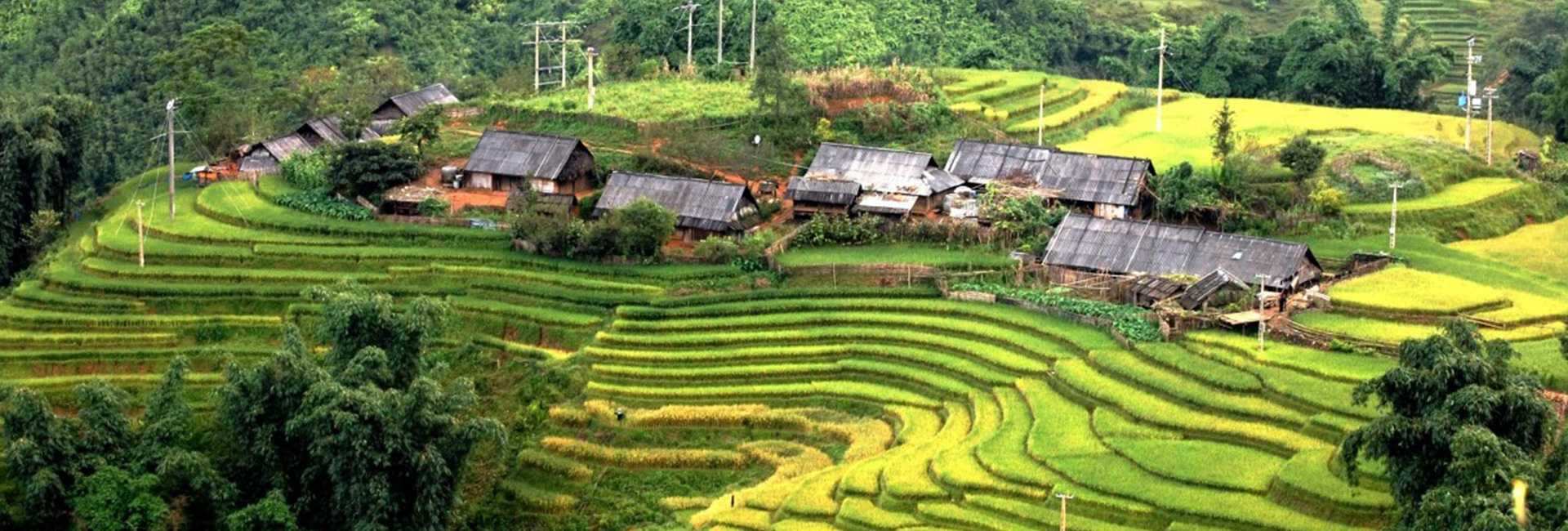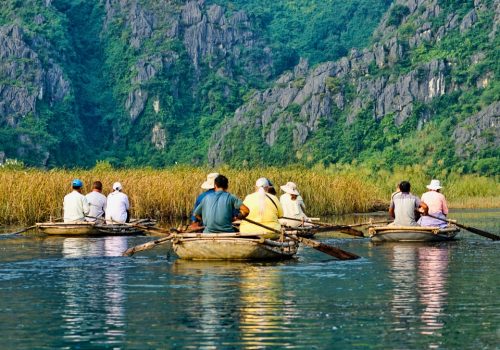Located in Northwest Vietnam, Sapa is synonymous with the highest mountain top in Vietnam, Fansipan (3143 m above sea level), as well as home to a great diversity of ethnic minorities. Coming to Sapa, you can not only be rewarded with breathtaking views of endless ranges of mountains and terraced fields but also have chances to discover everyday village life. Tucked away in the northern highlands of Vietnam, Sapa village showcases terraced rice fields, traditional crafts, and cultural practices that have remained largely unchanged for generations. So, let’s check some useful information about the top 7 Sapa villages for your Sapa Vietnam tours.
What you will find in this travel blog:
- Is it worth visiting Sapa village?
- Top 7 best Sapa villages to visit
- When is the best time to visit Sapa village?
- Travel tips to visit Sapa village
Is it worth visiting Sapa village?
Sapa villages are absolutely worth visiting for travelers who want to experience authentic highland culture and breathtaking mountain scenery. Unlike many tourist destinations that have lost their character due to overdevelopment, many Sapa villages still maintain their traditional way of life.
A visit to Sapa villages gives you a chance to stay with local families in homestays, learn about traditional crafts like indigo dyeing and hemp weaving, and taste authentic mountain cuisine. Walking between villages lets you experience the daily rhythms of rural life, from farmers working in fields to children playing along village paths. The ethnic minority groups living in these villages have fascinating cultural traditions that they’re often happy to share with respectful visitors.
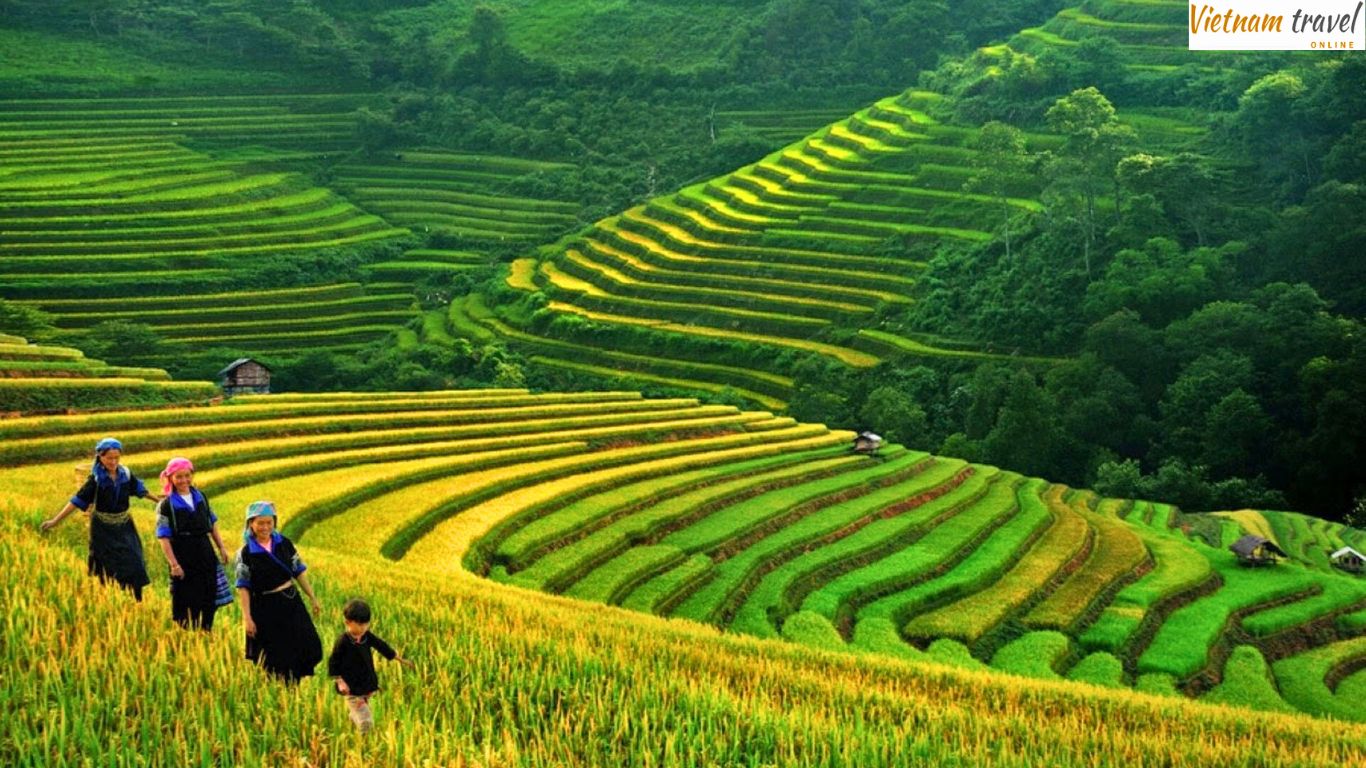
What you can expect when visiting Sapa villages:
- Stunning terraced rice fields that change colors with the seasons
- Traditional wooden houses built in unique architectural styles
- Colorful markets where ethnic minorities sell handicrafts and local produce
- Friendly local people wearing distinctive traditional clothing
- Opportunity to stay in authentic homestays with local families
- Delicious home-cooked meals featuring local ingredients and recipes
- Cultural performances of traditional music and dance
- Trekking paths connecting villages with beautiful mountain views
- Local craft demonstrations like weaving, dyeing, and embroidery
- Children and women selling handmade souvenirs and textiles
- Water buffaloes working in fields or relaxing in streams
- Cool mountain weather that offers relief from Vietnam’s tropical heat
Top 7 best Sapa villages to visit
Ta Phin Village
- Location: 17km northeast of Sapa Town center, Lao Cai Province
- Suitable for: Cultural enthusiasts, photographers, those interested in ethnic cultures
- Best time to visit: March-May or September-November for pleasant weather
- Budget: $20-40 USD daily (homestays $10-20, meals $3-5)
Ta Phin Village is one of the most attractive community-based eco-tourism destinations near Sapa town. The village is mainly home to Red Dao and H’mong ethnic groups who live in harmony while maintaining their distinct cultural identities. The natural landscape surrounding. Ta Phin is truly beautiful, with mountain views and rice fields creating a peaceful rural setting.
When you visit Ta Phin, you’ll be welcomed into local houses built next to scenic rice fields. The women of the Red Dao community are famous for their exceptional embroidery skills, creating intricate designs on clothing and handicrafts. These textiles make wonderful souvenirs that support the local economy.
A highlight of Ta Phin is the nearby Ta Phin cave with interesting stalactite formations. The village is also known for the medicinal herbal baths created by the Red Dao people. This traditional treatment uses forest herbs gathered by local knowledge and is available at several locations in the village. The bath is said to help with circulation, skin problems, and muscle pain.
The trekking route from Sapa town to Ta Phin takes you through Ma Tra village and beautiful rice terraces. The entire loop is about 20km and offers varied scenery. If you don’t want to walk the whole way, you can hire a motorbike with driver or a private car. Ta Phin has developed strong homestay services in recent years, allowing visitors to experience local life and try regional specialties.
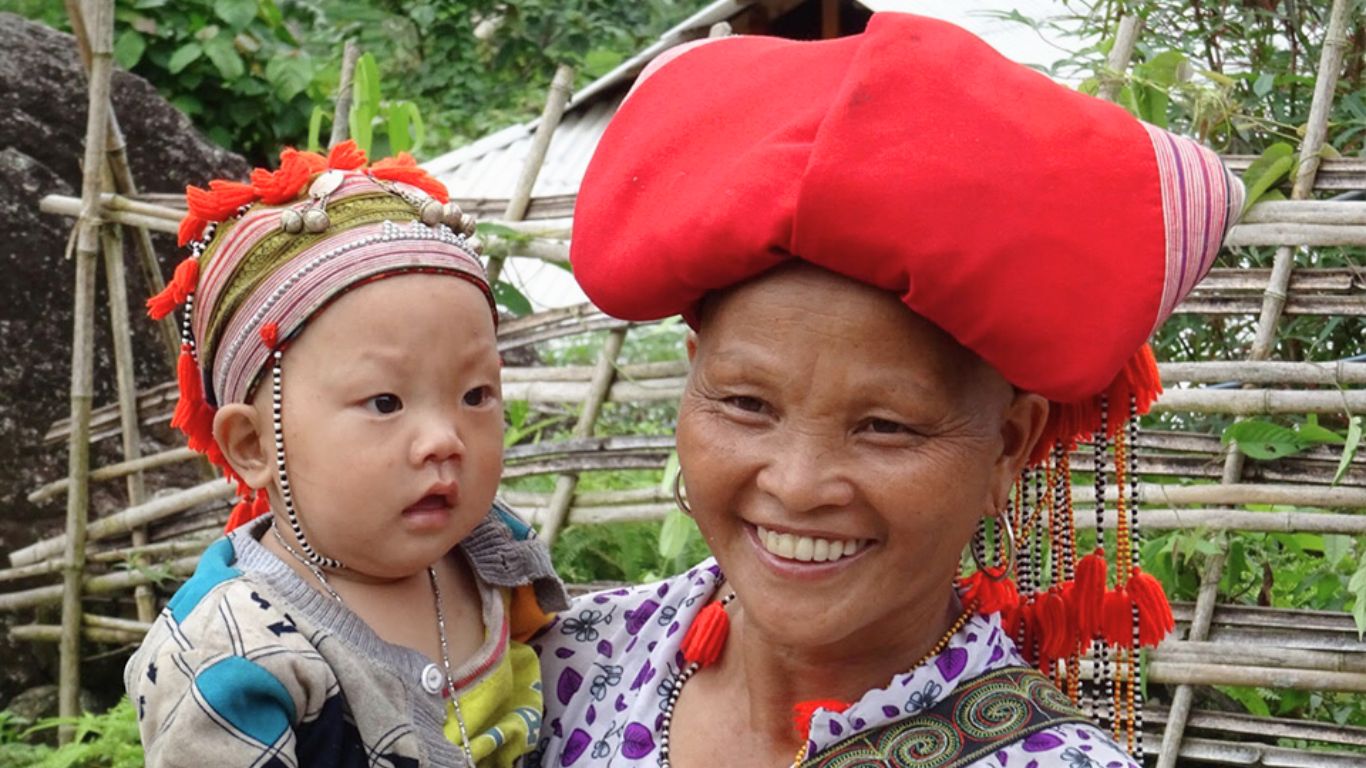
Cat Cat Village
- Location: 3km southwest of Sapa town center, Lao Cai Province
- Suitable for: Casual visitors, photographers, first-time visitors to Sapa
- Best time to visit: Year-round, but especially beautiful in September-October (harvest)
- Budget: $15-30 USD daily (entrance fee $2, food $3-6)
Cat Cat Village was formed in the mid-19th century by Black H’mong people who built wooden houses on the mountain slopes. Just a short distance from Sapa town, this village is the most accessible and popular destination for visitors. The pleasant walking trail from town to the village takes you downhill through houses and fields on stone-paved paths.
The women in Cat Cat continue to practice traditional crafts including cotton, linen, and cloth weaving. Visitors can see these practices demonstrated in several houses throughout the village. The walking loop through Cat Cat is about 5km and includes steps, but can be completed by anyone with moderate fitness.
In the center of the village, you’ll find a hydroelectric power plant built by the French a century ago, next to a beautiful waterfall. Twice daily, there are cultural performances showcasing traditional music and dance. Cat Cat has been developed with tourism infrastructure, including exhibits highlighting cultural artifacts and handicrafts.
Moreover, the Cat Cat waterfall, so-called Tien Sa waterfall, one of the most beautiful Sapa waterfalls is a must-visit. Trekking up there, you are able to get an overall view of the waterfall and the surrounding area.
For photography enthusiasts, Cat Cat offers many picture-perfect spots: Mị’s house, A Phủ’s house, a bird’s nest display, a sunflower garden (in August), a “Maldives” hammock, and a rose garden with a giant decorative comb. You can rent traditional H’mong clothing for photos (50,000-100,000 VND per set) to create memorable pictures. Despite being the most touristy of Sapa’s villages, Cat Cat maintains its charm and beauty, making it a must-visit destination, especially for those with limited time.
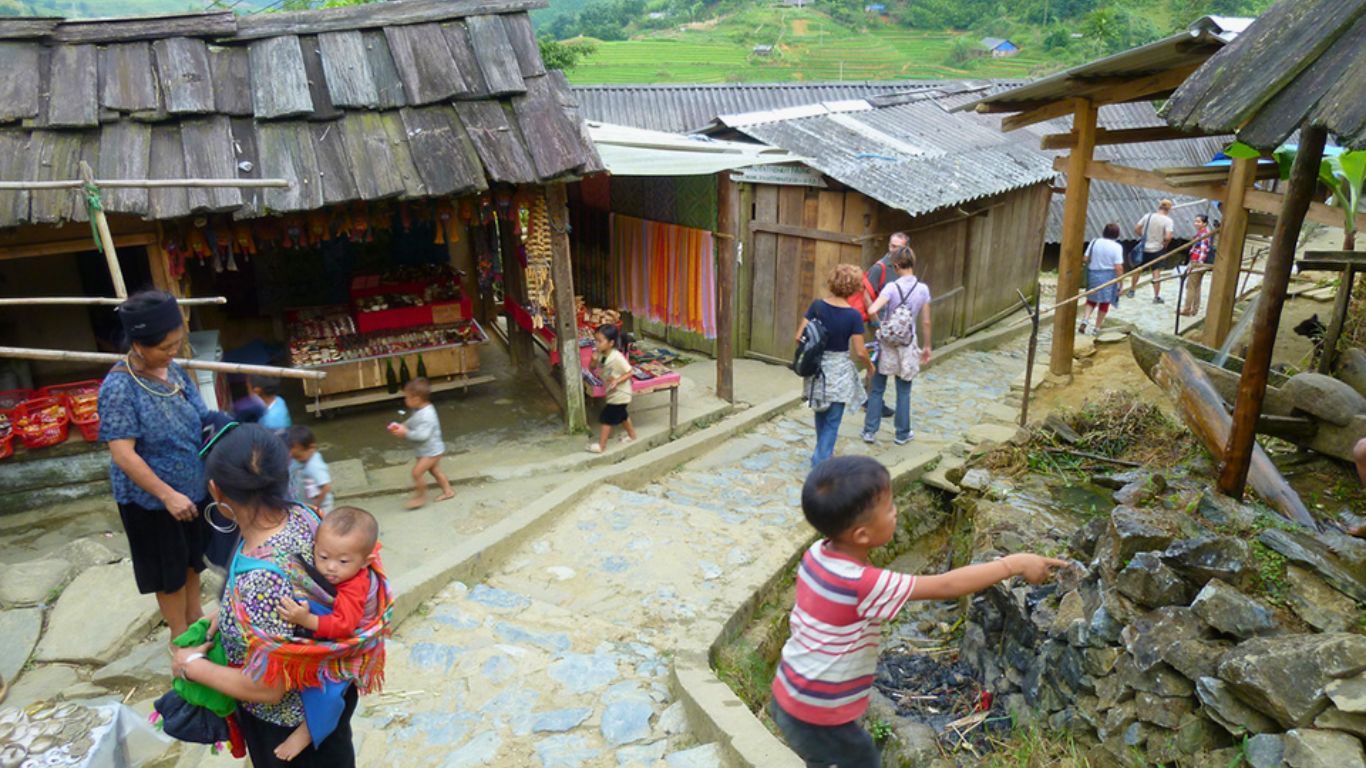
Sin Chai Village
- Location: 5km from Sapa town center, 2km past Cat Cat village
- Suitable for: Adventure travelers, off-the-beaten-path explorers, authentic culture seekers
- Best time to visit: September-October (rice harvest) or May-June (green season)
- Budget: $15-30 USD daily (simple meals $2-4, no entrance fee)
Sin Chai Village lies at the foot of the majestic Hoang Lien Son mountain range and has existed for over a century. Though located quite close to Sapa town, this village sees fewer tourists than other more popular destinations. This makes Sin Chai an ideal place for travelers who want to observe and learn about the authentic lives of the Black H’mong people without large crowds.
The village is characterized by traditional wooden houses built close to a small road that’s just wide enough for motorbikes to pass. Despite its simplicity, Sin Chai is beautiful in its authenticity. The terraced fields surrounding the village have their own special character, though they aren’t as extensive as those in other areas.
Sin Chai is particularly beautiful in September and October when the rice fields turn golden with the harvest. The vast landscape is painted with the colors of ripening rice, creating a truly enchanting scene. From May to June, the village also shows another face of beauty when streams cascade down from the high mountains, flowing through the terraced rice fields and creating mirror-like reflections.
Visitors to Sin Chai can see H’mong women in traditional dress going about their daily activities, providing a genuine glimpse into local culture. The relative lack of tourism development means interactions feel more natural and less commercial than in some other villages. A visit to Sin Chai complements the more developed attractions like Cat Cat, giving travelers a more complete picture of life in the Sapa region.
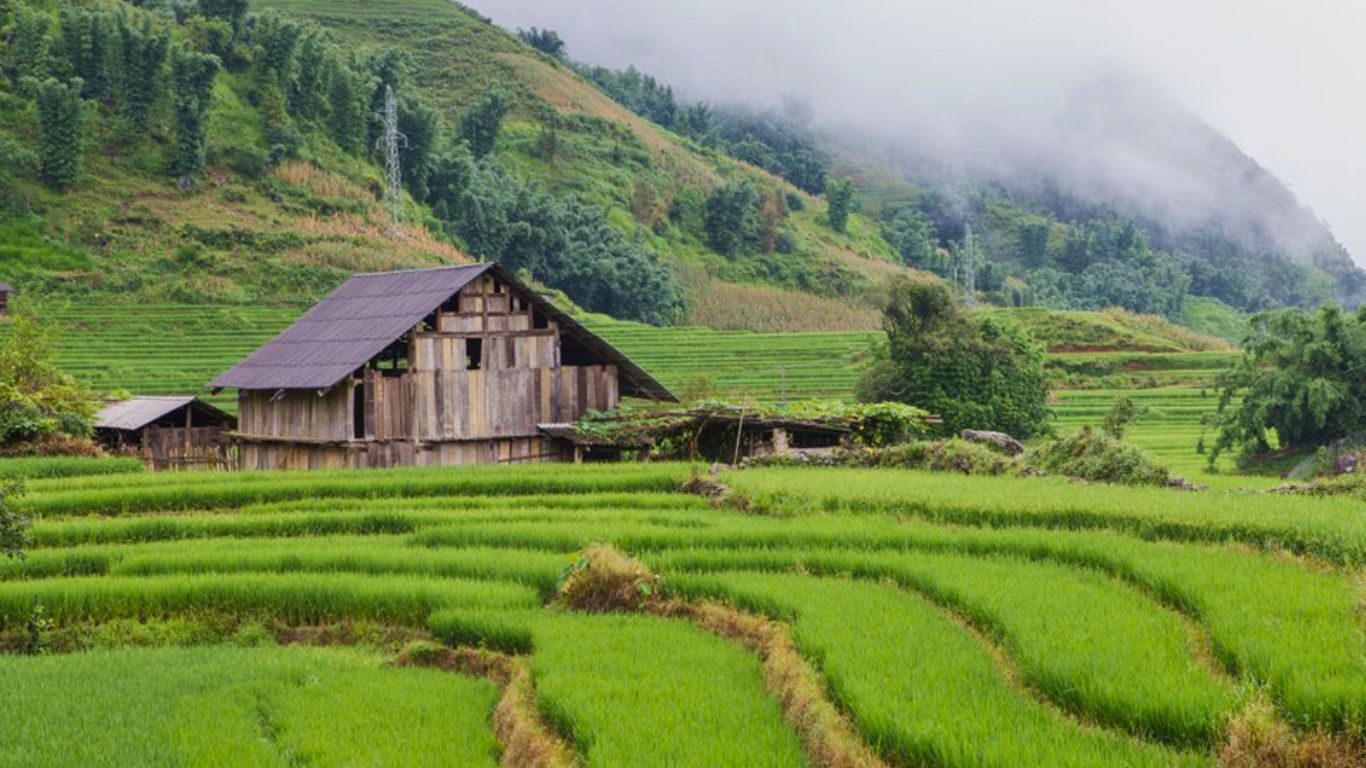
Y Linh Ho Village
- Location: Between Sapa town and Muong Hoa Valley, about 6km from town center
- Suitable for: Trekking enthusiasts, photographers, nature lovers
- Best time to visit: March-May or September-November
- Budget: $15-35 USD daily (no entrance fee, guide recommended $15-20)
Y Linh Ho Village isn’t often mentioned in standard tourist itineraries, but it offers one of the wildest and most beautiful trails in the Sapa region. The village is located between Sapa town and Muong Hoa valley, and many travelers bypass it on standard tours. This makes it perfect for those seeking an off-the-beaten-path experience.
What makes Y Linh Ho special is its location. Standing on the southern edge of Sapa town, you can see the village below, but the significant difference in elevation means you must descend quite far to reach it. The challenging topography has helped preserve the village’s authentic character.
A full hiking day can take you from Sapa town through Cat Cat village, then through Y Linh Ho before exploring Lao Chai and Ta Van village in Muong Hoa Valley. The trail winds through forests and terraced fields with H’mong wooden houses scattered throughout the landscape. The hike can be challenging in spots but rewards visitors with views and experiences that most tourists miss.
The relatively difficult access has kept Y Linh Ho less developed than other villages, providing a more authentic glimpse into local life. Trekking along the narrow trails through terraced fields and past traditional wooden houses creates lasting memories and spectacular photo opportunities. For those willing to venture beyond the standard tourist path, Y Linh Ho offers a genuine highland experience.
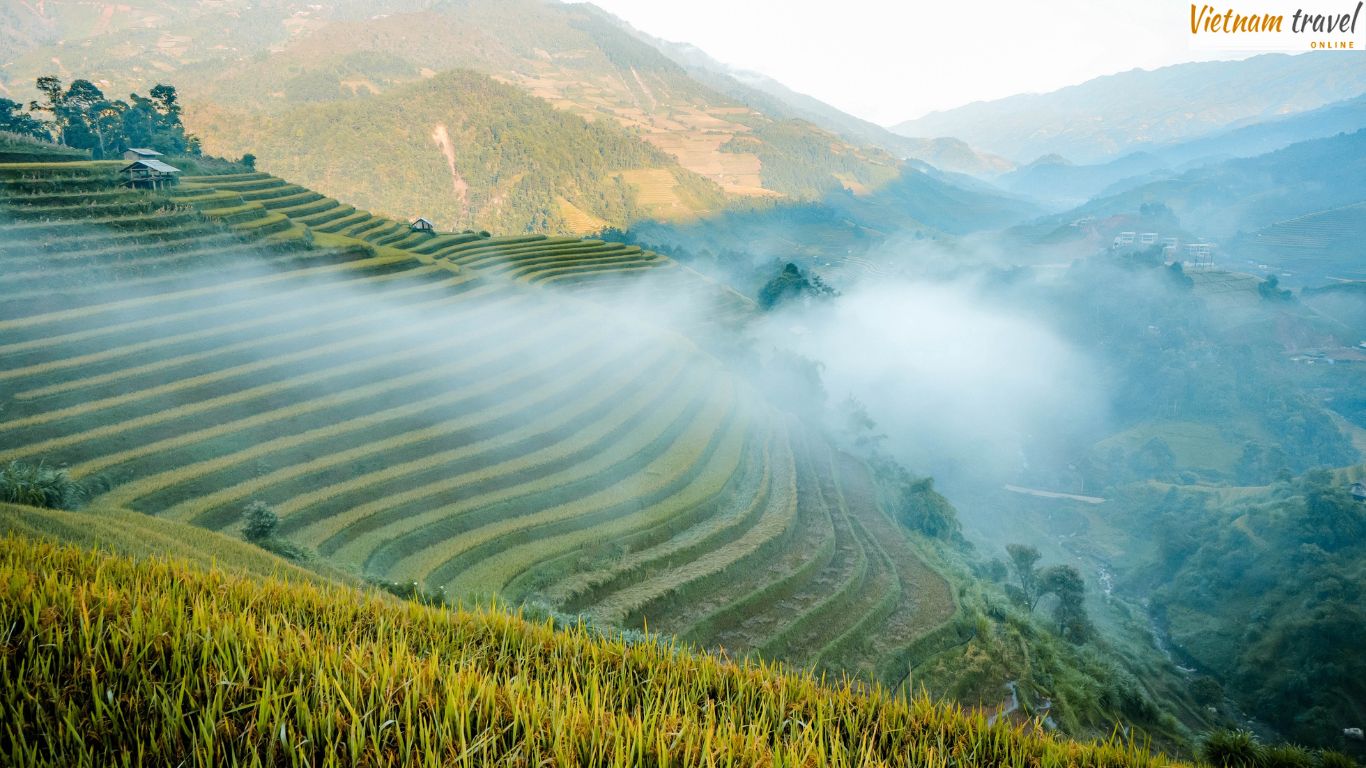
Lao Chai Village
- Location: 7-9km southwest of Sapa town, in Muong Hoa Valley
- Suitable for: All visitors, especially photography enthusiasts and culture lovers
- Best time to visit: May-June (green rice fields) or September-October (golden harvest)
- Budget: $20-40 USD daily (homestays available $10-20, meals $3-5)
Lao Chai Village is located in the widest and most beautiful valley of the Sapa region – one that can be glimpsed from Sapa Town or from the top of Ham Rong mountain. About 7-9km from the center of town, Lao Chai is home to H’mong people whose traditional houses are interwoven with some of the most spectacular terraced rice fields in Vietnam.
You can reach Lao Chai either by car/motorbike on the main road or by taking hiking trails from Sapa. The hiking route follows mountain slopes with winding trails that run parallel to the Hoang Lien Mountains. This path offers beautiful scenery with bamboo forests and mountain views before descending into the valley.
Lao Chai is one of the larger villages in Sapa with traditional houses dotting throughout the valley in small hamlets that stretch from Muong Hoa stream to the foot of the Hoang Lien mountain range. What makes Lao Chai particularly special is that it sits in Muong Hoa valley (Golden stream valley), which has the largest and most beautiful rice terraced fields in Sapa. These fields are ranked among the most beautiful in all of Northern Vietnam and are recognized as one of the country’s national beauty spots.
The village offers a perfect combination of natural beauty and cultural interest. With the majestic Hoang Lien Son range as a backdrop and the Muong Hoa stream flowing through the valley, the terraced fields form what looks like a giant staircase climbing the mountainside. For many visitors, Lao Chai provides the quintessential Sapa experience with its perfect balance of accessibility and authenticity.
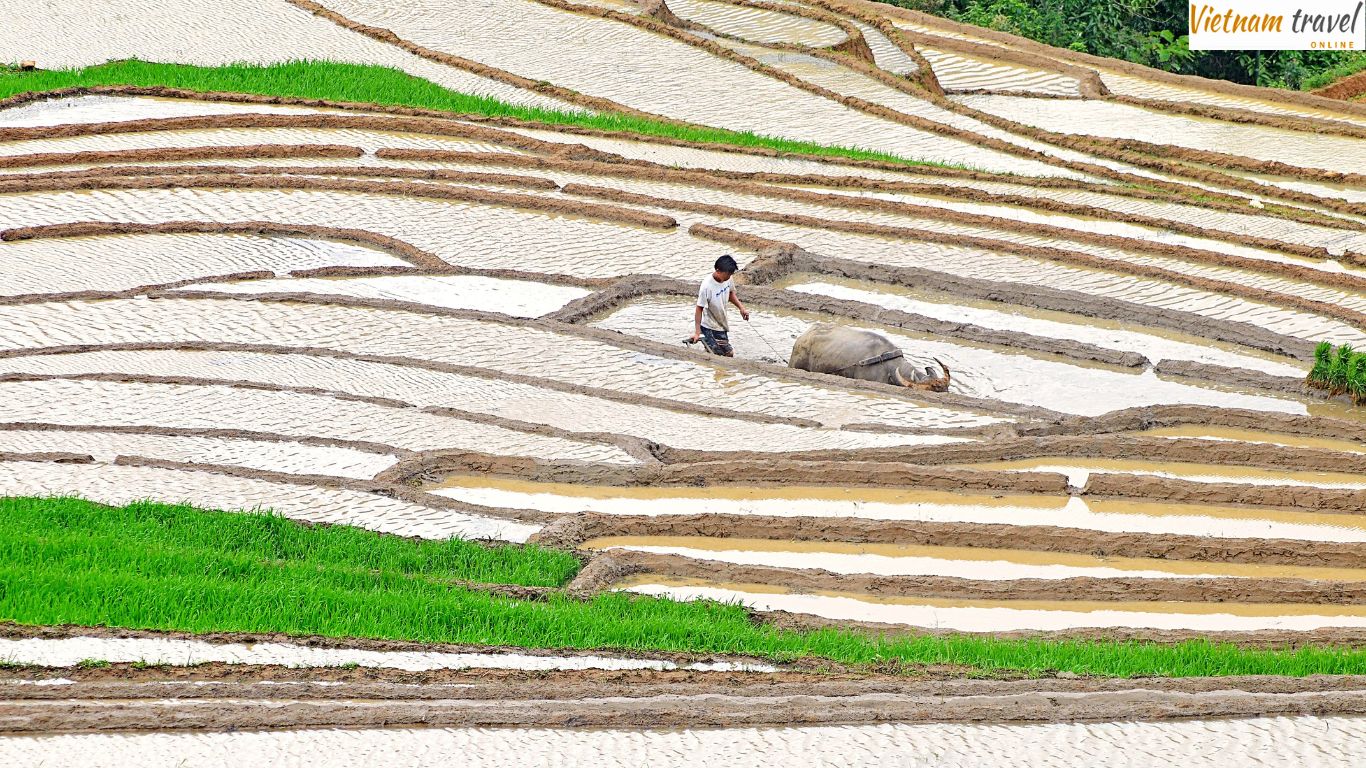
Ta Van Village
- Location: 10-11km from Sapa town center, sharing Muong Hoa Valley with Lao Chai
- Suitable for: Cultural enthusiasts, first-time visitors, those interested in homestays
- Best time to visit: March-May or September-November
- Budget: $25-45 USD daily (homestays $15-25, meals $3-7)
Ta Van village shares the other half of Muong Hoa valley with Lao Chai village, located about 10-11km from Sapa Town. In the H’Mong language, Ta Van means “big arc,” aptly describing the curved shape of this beautiful valley. The village is primarily home to the Giay ethnic people, though some H’Mong and Red Dao people also live here.
Ta Van is strategically located with the spectacular view of the Hoang Lien Son mountain range behind it and the clear Muong Hoa stream flowing in front. This positioning creates what many consider a perfect natural composition – a real-life painting of mountains, water, and terraced fields. The terraced rice fields undulate with the natural contours of the land, creating a hypnotic pattern that changes colors with the seasons.
In recent years, Ta Van has developed the most extensive homestay services in the Sapa region. These homestays allow visitors to experience local hospitality, sleep in traditional houses, and enjoy home-cooked meals featuring local ingredients and recipes. Many visitors choose to trek from Sapa through Lao Chai to Ta Van, then spend the night in a homestay before returning to town the next day.
From Ta Van village, you can conveniently travel to other famous destinations in Sapa such as Lao Chai, Cau May, and Ta Phin. The village has several local restaurants serving regional specialties, making it a perfect lunch stop even for day-trippers. The Giay people welcome visitors warmly, often sharing stories, corn wine, and their cultural traditions. Don’t forget to purchase some of their handmade items as souvenirs of your visit.
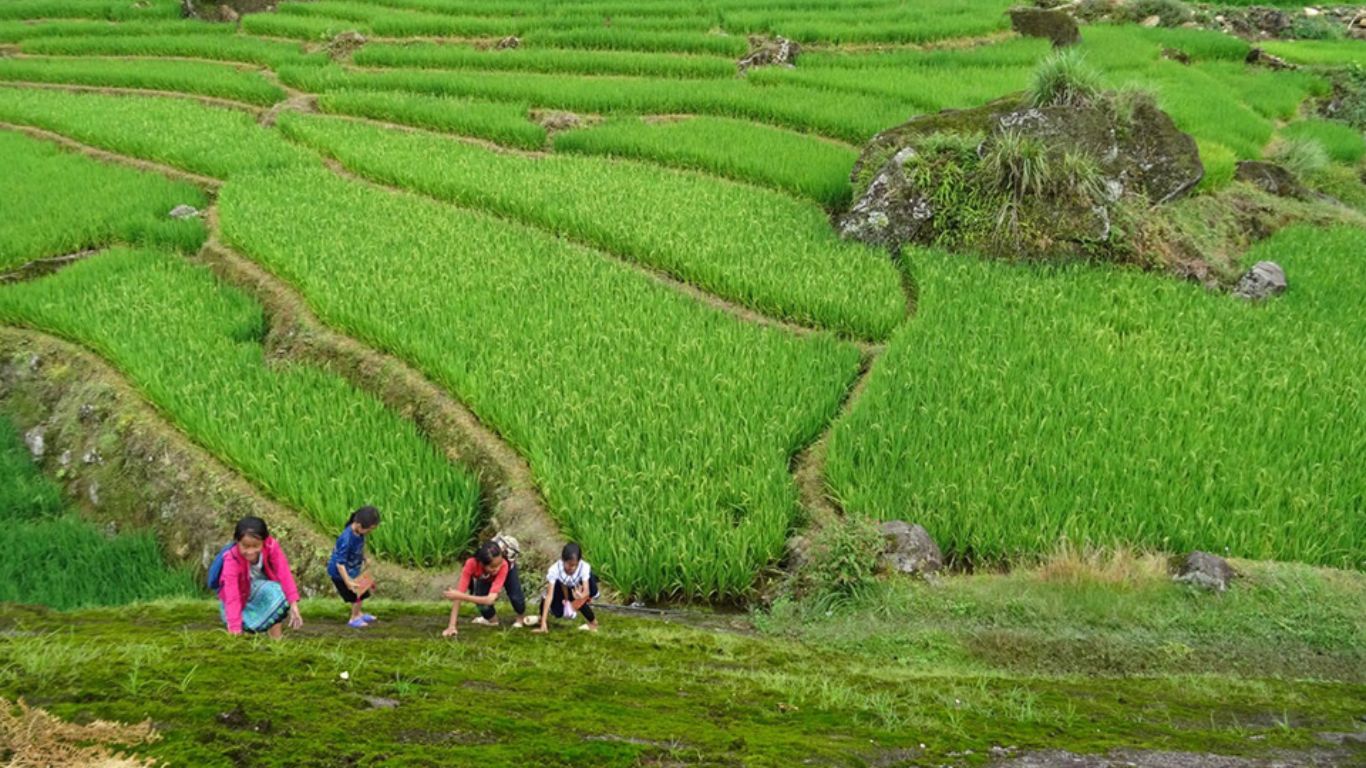
Ban Ho Village
- Location: About 30km from Sapa town, in the same direction as Lao Chai and Ta Van
- Suitable for: Off-the-beaten-path travelers, cultural enthusiasts, peaceful retreat seekers
- Best time to visit: April-May or September-October for pleasant weather
- Budget: $25-45 USD daily (homestays $15-25, meals $3-7)
Ban Ho Village is a unique settlement of the Tay ethnic people, located about 30 kilometers from Sapa town. With a relatively small population compared to other ethnic groups in the region, this is the only village in Sapa inhabited primarily by the Tay people. The village sits in a small valley at the end of Muong Hoa stream, providing a serene setting surrounded by mountains.
To reach Ban Ho from the main road, visitors travel down a majestic winding road that offers beautiful views of the surrounding landscape. The descent itself is part of the experience, with each turn revealing new perspectives of the valley below. This more remote location means Ban Ho sees fewer tourists than villages closer to Sapa town.
The most interesting aspect of visiting Ban Ho is the opportunity to stay in traditional stilt houses. These wooden structures, elevated on stilts, are the typical housing style of the Tay people. The design keeps the living area dry during rainy seasons and provides space underneath for animals or storage. Homestays in these houses offer a genuine glimpse into Tay daily life and culture.
Ban Ho is known for its excellent food, with local specialties prepared using fresh ingredients from nearby forests and fields. Meals often include dishes like bamboo-tube rice, grilled fish from the stream, and various mountain herbs and vegetables. Another popular activity is bathing in the clear waters of the stream that runs through the village—a refreshing experience after a day of hiking.
For travelers looking to escape the more touristic areas of Sapa, Ban Ho provides a quieter, more authentic alternative. The village offers beautiful natural surroundings, cultural experiences, and a chance to learn about the Tay people, whose traditions differ from the H’mong and Dao groups found in other parts of Sapa. The extra distance from town rewards visitors with a more secluded and peaceful village experience.
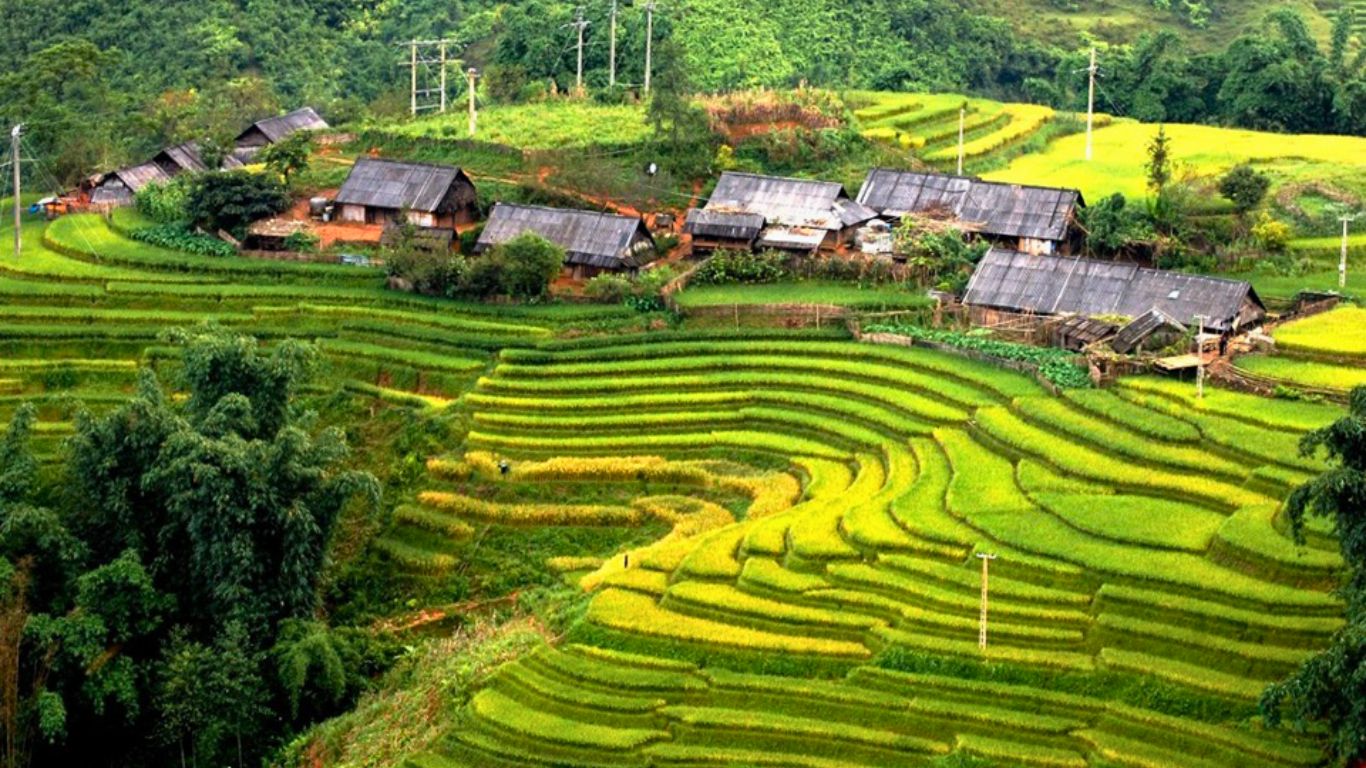
When is the best time to visit Sapa village?
For most visitors, the optimal times to visit Sapa villages are late September to early November for the golden harvest scenes, or March to May for green landscapes and pleasant weather. If you plan to trek between villages, these periods offer the most favorable conditions. However, each season has its own appeal, and visiting during the off-peak times can provide a more authentic experience with fewer tourists.
Spring (February to April) brings moderate temperatures and blooming flowers throughout the region. In February, you might catch the tail end of winter with occasional frost and cool temperatures, but by March and April, the weather becomes more pleasant. This season is perfect for photography as peach and plum blossoms add splashes of color to the landscape. The rice fields are being prepared for planting, with water-filled terraces creating mirror-like reflections of the sky. Spring festivals and markets are lively during this time, especially around Lunar New Year.
Summer (May to August) is the rainy season in Sapa. May and June offer lush green landscapes as the young rice plants grow in the terraced fields. The mountains and valleys are at their most vibrant green during this period. However, July and August bring heavy rainfall, which can make trekking paths muddy and slippery. Trails to remote villages might become difficult or dangerous to navigate. The benefit of visiting during summer is that you’ll see fewer tourists, and the misty mountains create a mystical atmosphere when the clouds roll in. Temperatures are warm but not hot, making it comfortable for walking when it’s not raining.
Fall (September to November) is considered the best season to visit Sapa villages by many travelers. The weather is stable with clear skies, mild temperatures, and less rainfall. September and October mark the rice harvest season, when the terraced fields turn golden yellow, creating the most photogenic landscapes. This is the peak time for photography enthusiasts. The air is crisp and visibility is excellent, allowing for spectacular mountain views. Fall is also when many ethnic minority groups hold harvest festivals and celebrations, giving visitors a chance to experience local traditions.
Winter (December to January) brings cold temperatures to the mountains, with occasional snow in higher elevations. Daytime temperatures can be comfortable for trekking, but nights get very cold. The landscape appears more stark and dramatic during winter, with bare trees and brown fields creating a different kind of beauty. Some visitors come specifically hoping to see snow on Fansipan mountain or frost covering the valleys. Winter also means fewer tourists, giving you a more private experience in the villages. However, some smaller homestays might close during the coldest months, and remote trails can become hazardous in icy conditions.
Whatever season you choose, always check the weather forecast before your trip and pack accordingly. Mountain weather can change quickly, so bringing layers is essential even during warmer months.
>>> Maybe you wanna read more: Best time to visit Sapa & Highlights by Season
Travel tips to visit Sapa village
- Proper footwear: Bring sturdy hiking shoes with good grip as village paths can be steep, slippery, and muddy, especially after rain.
- Local guides: Hire a local guide from your ethnic group of interest. They provide cultural insights, language translation, and help navigate unmarked trails.
- Respectful photography: Always ask permission before taking photos of local people. Some villages charge small fees for photography.
- Bargain fairly: Negotiate prices for souvenirs and services but remain respectful. Remember that handicrafts take many hours to create.
- Cash only: Bring enough Vietnamese dong as ATMs and card payments aren’t available in most villages.
- Dress appropriately: Pack layers and rain gear. Mountain weather changes quickly, and mornings/evenings can be cool even in summer.
- Stay overnight: Experience village life more fully by booking a homestay rather than rushing through on a day trip.
- Support sustainably: Buy directly from artisans and eat at family-run establishments to ensure money benefits local communities.
- Learn basic phrases: A few words in Vietnamese or local languages (H’mong, Dao) go a long way in building connections.
- Prepare for basic conditions: Most villages have limited electricity, simple toilet facilities, and no hot water.
- Pack light: For trekking between villages, carry only essentials as you’ll be walking up and down hills for hours.
- Book transportation ahead: Arrange return transport if not staying overnight, as taxis and motorbike drivers are limited in remote areas.
- Respect local customs: Remove shoes before entering homes, accept food/drink offerings when given, and ask before touching items in homes.
- Try local specialties: Each village has unique dishes – try thang co (horse meat soup), smoked buffalo, and colored sticky rice.
This travel guide to Sapa villages will help you plan a meaningful visit to this beautiful mountain region of Vietnam, providing essential information about the top 7 attractive Sapa villages, each one has its own characteristics. By following the travel tips provided and approaching your visit with respect and curiosity, you will discover the true beauty of Sapa beyond the tourist crowds. We hope that you will be helpful when planning your Vietnam tours and answering the question “where to go in Sapa”.
Mo Nguyen – From Vietnam Travel Online
Other tours you might consider
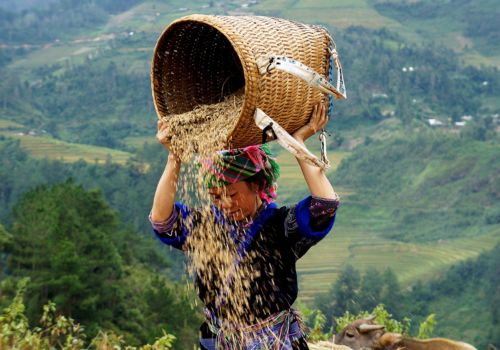
 Ha Giang - Quan Ba - Dong Van - Meo Vac - Hoang Su Phi - Bac Ha - Sapa
Ha Giang - Quan Ba - Dong Van - Meo Vac - Hoang Su Phi - Bac Ha - Sapa - Cultural, history & local learning
- Photography interest
- Eco & nature lovers
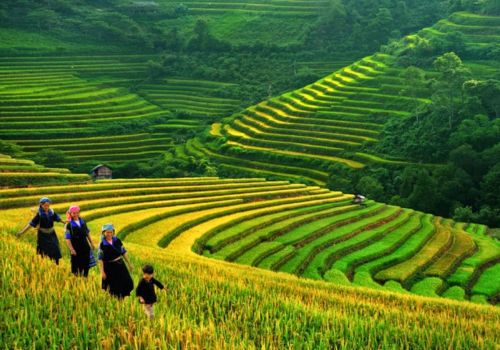
 Hanoi – Halong Bay – Sapa
Hanoi – Halong Bay – Sapa - Cultural, history & local learning
- Photography interest
- Leisure & a bit of everything


